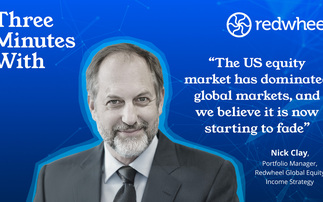Darren Pilbeam, UK Head of Sales at Natixis Investment Managers, explains why alternatives are proving popular in 2019
The traditional 60/40 equity and bond portfolio came under increasing pressure in 2018. This was especially the case during periods of market stress, such as in February 2018, when both asset classes declined sharply in unison.
Meanwhile, the second half of 2018 saw a shift from synchronized global growth to an unsynchronized slowdown across regions. The fourth quarter of 2018, in particular, saw global equities fall by almost 13% - the Nasdaq was technically in bear market territory on 24 December, down 23% from its end-August peak. December was the worst month for US equities in 50 years.
With interest rates rising, central banks reducing their stimulus and market volatility increasing, 2019 is shaping up to be a complex and challenging investment landscape. Traditional asset classes like equities and bonds certainly still have their place in portfolios, but there's an increasing need to think outside the box and look at the alternatives.
A question of risk versus return
We know that alternative investments are becoming increasingly popular with financial advisers and wealth managers, with seven in ten saying they have become essential for portfolio diversification (Natixis Professional Fund Buyers Survey 2018).
Alternative strategies have the potential to boost portfolio diversification, which can help to counteract the risk that poor performance by any single asset class or investment strategy might pose to a portfolio's overall health. They are also designed to have a low correlation to stocks and bonds, so they move independently of how these assets might behave in other market conditions.
These characteristics ultimately result in a reduction of portfolio risk, dampening the negative effects of market volatility if and when it occurs. In addition, alternative strategies can also help amplify portfolio returns by providing investors with new sources of performance that can be generated often irrespectively of the broader market backdrop.
In short, alternative investments help to de-correlate and diversify portfolios while dampening the impact of volatility. And, given the bumpy investment landscape of 2019, it's perhaps easy to see why most investors are planning to allocate more of their portfolios to alternatives in both the short and the long term.











